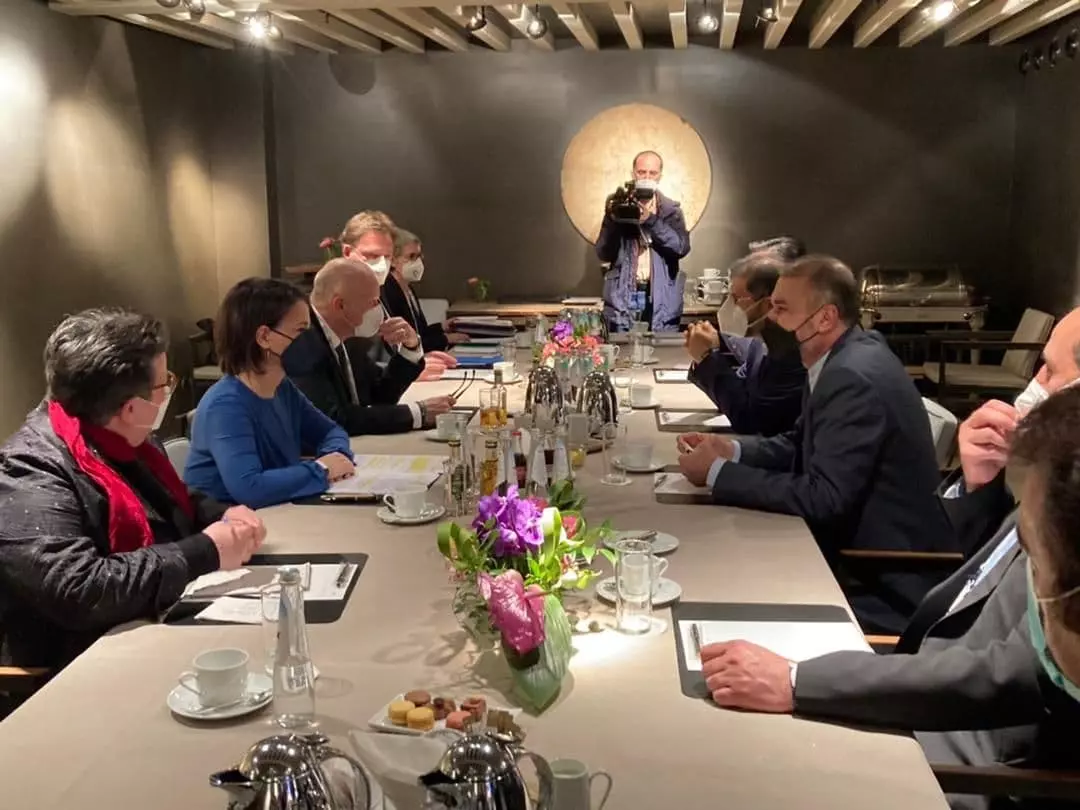The main focus of the negotiations between the Iranian foreign minister and his counterparts was the Vienna talks between Iran and the P4+1 group of countries.
In a meeting with Dutch Foreign Minister Wopke Hoekstra Amir Abdollahian underlined Iran’s position on the need to lift all sanctions inconsistent with the nuclear deal, JCPOA, and the need to respect the Islamic Republic’s red lines during the negotiations.
Hoekstra also expressed hope that an agreement will be reached in Vienna as soon as possible.
During talks with Sweden’s top diplomat, Amir Abdollahian briefed Ann Linde on Iran’s principled position in the negotiations and underlined the country’s serious will to reach a good agreement if the other parties fulfill their obligations.
Another foreign top diplomat the Iranian foreign minister met in Munich was his Italian counterpart Luigi Di Maio. He told Di Maio that Iran is determined to reach a good agreement in the shortest time, but it is unknown how many days or weeks it will take depending on the behavior and will of the United States and Europe’s attention to the principles and rules of negotiations and Iran’s legitimate rights.
Di Mio said for his part that Italy will maintain economic ties with Iran regardless of the outcome of the Vienna negotiations. He however noted that a comprehensive agreement to revive the Iran nuclear deal will certainly create a new space for a leap in relations between Tehran and Rome.
Amir Abdolalhain also held talks with Austrian Foreign Minister Alexander Schallenberg over the Vienna talks.
He outlined Iran’s red lines in the negotiations, saying, “If the final choice is between no deal and violation of the interests of the Iranian people, then Tehran’s definite choice is to respect national interests and not cross its red lines.
Amir Abdollahian added, “Now the Western parties must make their final decision on whether they want to end the current economic terrorism and their inaction and misdeeds, or still want to leave the scar unhealed under unacceptable pretexts.”
He stressed that the launch of media campaigns by the three European countries – France, Britain and Germany- and the United States to achieve their goals in negotiations does not affect the mission of the Iranian negotiators to protect the interests of Iran.
Schallenberg for his part said, “The final stages of the talks are very tough and sometimes breathtaking, and some days progress may not be made, but we must all continue to work to reach a deal”.
He added that although Austria is not a party to the Iran nuclear deal, JCPOA, it has a firm commitment to give any possible assistance to the negotiations.
The Austrian foreign minister also said there is no doubt that the restoration of the JCPOA and the return of all parties to their commitments is the solution to the crisis that was created by the former US president in the first place.
Amir Abdollahian and his counterparts also spoke about the situation in Afghanistan and Yemen.
The top diplomats and his peers agreed that an inclusive government is the solution to the crisis in Afghanistan and that the Yemen conflict can on be resolved through political means and dialog between the warring sides.
